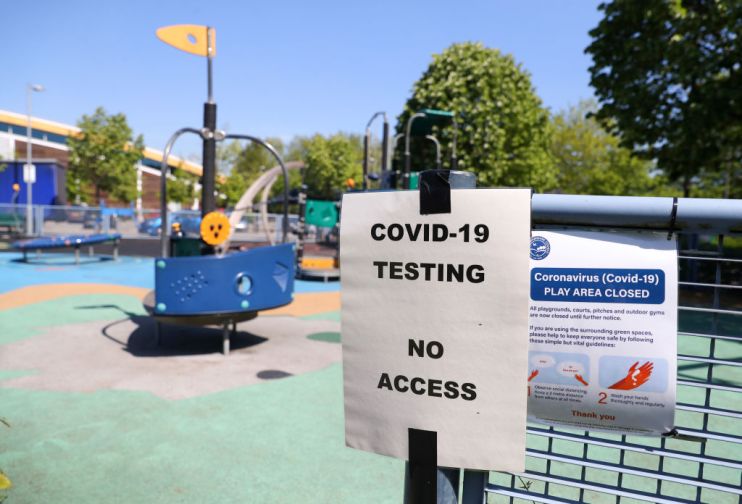UK to order approved antibody coronavirus tests ‘as quickly as we can’

The government will be ordering the first batch of approved coronavirus antibody tests from Swiss manufacturer Roche “as quickly as we can”, according to a health minister.
The test, which it is believed will show if someone has immunity from Covid-19, has been described as “a game changer” by Prime Minister Boris Johnson and a key tool in helping people get back to work.
Health minister Ed Argar confirmed today that the first test had been given regulatory approval, as first reported by the Telegraph, and that the government would be ordering them in for NHS staff imminently.
Speaking to the BBC, he said: “We’re in discussion at the moment with Roche on this. It’s only just gone through the Public Health England assessment as being reliable, as doing the job, and therefore we are having those discussions.
“But we are keen to get as many as quickly as we can and get them out, primarily to the front line first, the NHS, social care and then more widely.
“Because this really will be – as the Prime Minister said – this has the potential to be a game-changer.”
It comes after the government previously had to cancel an order for 3.5m antibody tests, after it was discovered they were not accurate.
The approved Roche test is said to show with 100 per cent efficacy that someone has antibodies related to fighting off the coronavirus.
There is still some debate about whether or not those who have been infected with Covid-19 will have long-term immunity.
Speaking to the Telegraph, the government’s head of its coronavirus testing programme Professor John Netwton said if it is proven that immunity can be attained then the antibody tests will allow people to get back to their normal lives.
“This is a very positive development, because such a highly specific antibody test is a very reliable marker of past infection,” he said.
“This in turn may indicate some immunity to future infection, although the extent to which the presence of antibodies indicates immunity remains unclear.”